![]()
“Automating adjustments has reduced wrist and arm strain, making long practice sessions much more comfortable.”
The ECLIPSE Ti2-I supports embryologists training at South Korea’s ART Academy
Declining birth rates are a major global issue, and the need for training of embryologists — specialists who handle oocytes, sperm, and fertilized embryos — has become increasingly urgent to help address this problem. The CHA Biomedical Group in South Korea has established the Global CHA Embryolab Academy (GCEA), a specialized institution that systematically trains embryologists to support assisted reproductive technology (ART).
At GCEA, Nikon’s ECLIPSE Ti2-I motorized inverted microscope for ICSI and IMSI plays a vital role for embryologists. Dr. Eun-Kyung Kim, a highly experienced embryologist and director of the Fertility Training Center at the institute, shared insights on the microscope’s operation and the benefits of its implementation.
*This article contains interviews with healthcare professionals regarding our products. However, these interviews do not guarantee the efficacy, effectiveness, or performance of the products, nor do they constitute an official endorsement, recommendation, advice, or selection by the featured professionals.
Per saperne di più
![]()
Sample preparation utilizing the SMZ18 is the key to microscopic videography
YONE PRODUCTION CO., LTD.
Kanako Morioka (Director, Research Department)
Preparing high-quality samples is the first step towards capturing beautiful images. Making samples for microscopy is a detailed, sometimes hours-long process that requires patience, skill, and ingenuity. Yone Production, a company that produces life science videos, employs the SMZ18 stereo microscope for this purpose. Here, Kanako Morioka of the Research Department at Yone Production, who oversees sample preparation, shares her experience of using the SMZ18.
Per saperne di più
![]()
“Automated settings enhance the efficiency of ART in clinical practice, research, and development.”
The ECLIPSE Ti2-I: Contributing to assisted reproductive technology (ART)
The declining birth rate presents a critical social issue that demands attention. Advancements in assisted reproductive technology (ART) are further anticipated to play a key role in addressing this issue. Fujita Medical Innovation Center Tokyo (FMiC) is committed to clinical practice, and the ongoing research and development of ART to help more people wishing to become parents. Nikon’s motorized inverted microscope for ICSI/IMSI, the ECLIPSE Ti2-I, plays a key role in this process. To gain deeper insights into its implementations and practical applications, we spoke with Dr. Tatsuya Kobayashi, an embryologist and Associate Professor at Fujita Health University’s Department of Regulatory Science.
*This page contains interviews with healthcare professionals regarding our products. However, these interviews do not guarantee the efficacy, effectiveness, or performance of the products, nor do they constitute an official endorsement, recommendation, advice, or selection by the featured professionals.
Per saperne di più
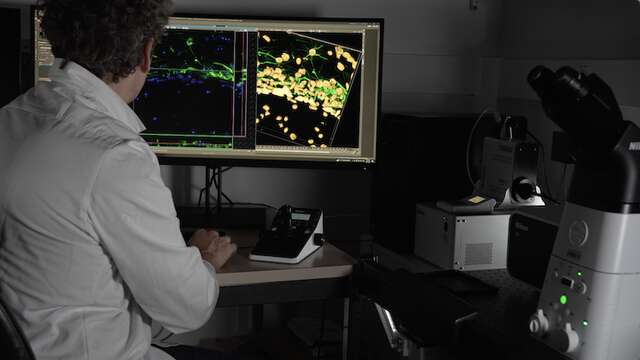
YOUR SWITCH TO THE FUTURE
Department of Biomedicine, University of Basel
Pascal Lorentz
Dr. Michael Abanto
Director of the Nikon Center of Excellence
Head of the Microscopy Core Facility
Research Outline: Immunology and infectious diseases, neurosciences, cancer biology, and tissue development and regeneration.
Per saperne di più
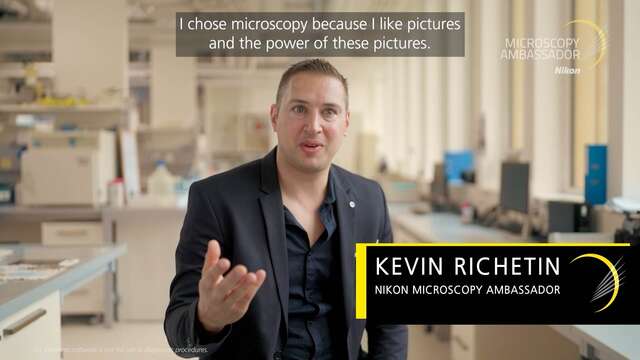
Dr. Kevin Richetin
Our Nikon Microscopy Ambassador Dr. Kevin Richetin is a neuroscience researcher studying Alzheimer’s disease and the development of tools for neurodegenerative diseases. In this interview video, Dr. Richetin discusses how they chose the Nikon microscope because its software NIS-Elements allows seamless integration of analysis and automation. He emphasizes that this unique capability is incredibly valuable for tracking particles with extremely high resolution over extended periods, a feature that sets Nikon apart.
Per saperne di più
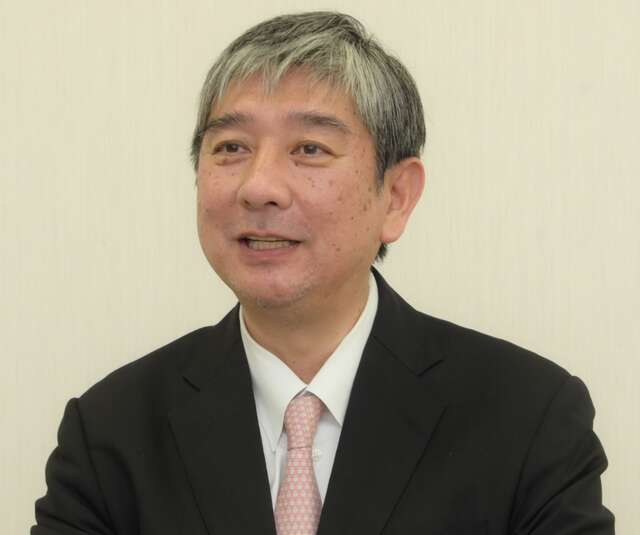
A step up in digital pathology using innovative digital microscopy.
Kitasato University Kitasato Institute Hospital
Director, Department of Pathology
Dr. Ichiro Maeda
Currently there are various treatment methods under development that could provide optimal medical care in response to the pathological attributes of each patient. Therefore, the role required of pathological diagnosis, which is indispensable for the planning of treatment policies and strategies, is becoming more important than ever before. However, the shortage of trained pathologists who assume this role is a common issue, not only in Japan, but also worldwide. To solve this problem, digital pathology has been attracting attention. In this article, we asked Dr. Ichiro Maeda, Director of the Department of Pathology, Kitasato University Kitasato Institute Hospital, for his impressions of using the digital image display optical microscope "ECLIPSE Ui".
*Dr. Maeda has provided feedback to Nikon on this microscope’s features and clinical usefulness based on his own personal experience.
Per saperne di più
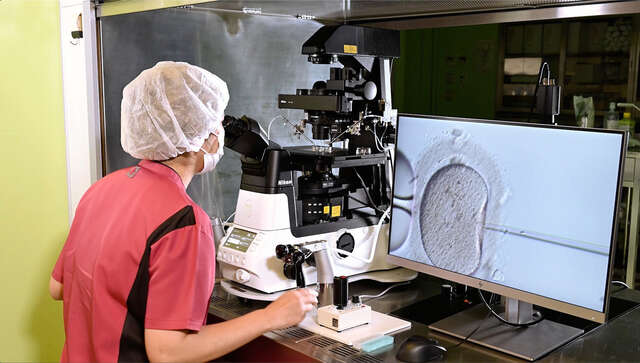
"In vitro fertilization is a race against time. I thought this microscope was very helpful in that sense."
In April 2022, insurance coverage for infertility treatment started in Japan, making it easier for couples who want to conceive to receive ICSI treatment. However, in general, there is still a belief that “infertility is not a disease”, so there are many patients who suffer from anxiety or feel impatient during treatment. We interviewed Shoko Ieda and Sumi Shimamura of the Minatomirai Yume Clinic, who say that they find it rewarding to acknowledge these emotions and help such patients with the birth of their babies, about their impressions of using “ECLIPSE Ti2-I”.
*Customers have provided feedback to Nikon on this microscope’s features and clinical usefulness, based on their own personal experience
Per saperne di più
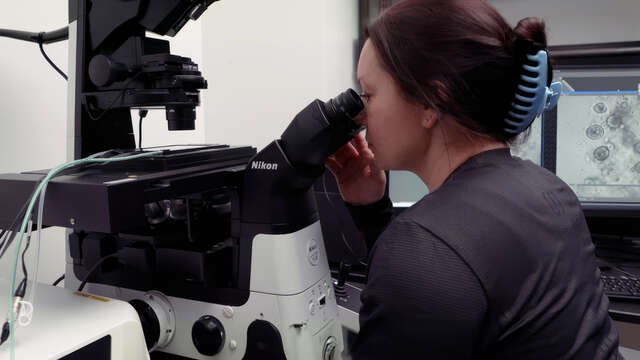
YOUR SWITCH TO THE FUTURE
Cincinnati Children’s Hospital Medical Center
Matthew Kofron, Ph.D.
Professor, UC Department of Pediatrics
Alicia Ostmann
Cincinnati Cystic Fibrosis Theratyping Research Center
Kentaro Iwasawa, M.D.
Takebe Lab, Division of Gastroenterology
Research Outline: Child health improvement. Organoid creation. Drug efficacy for cystic fibrosis patients.
Per saperne di più
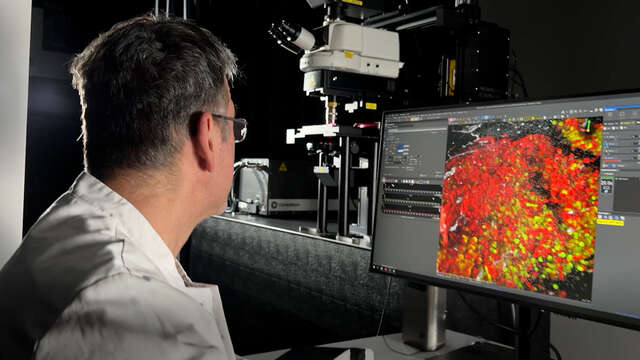
YOUR SWITCH TO THE FUTURE
European Institute for Molecular Imaging (EIMI)
Professor Friedemann Kiefer, Ph.D.
Department of Intravital Molecular Imaging
Research Outline: Elucidation of how molecular mechanisms shape human cells and tissues biologically. Multiscale imaging.
Per saperne di più
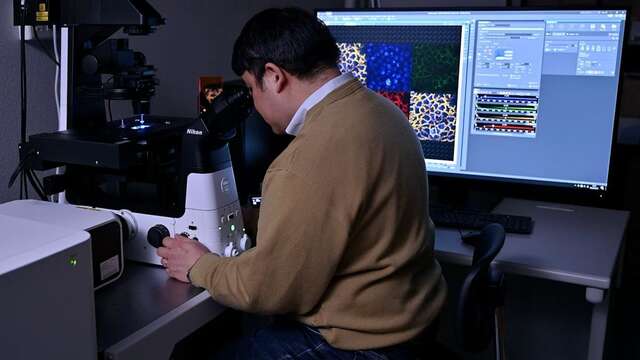
YOUR SWITCH TO THE FUTURE
National Institutes of Natural Sciences, National Institute for Physiological Sciences
Tetsuhisa Otani, Ph.D. Assistant Professor
Division of Cell Structure
Research Outline: Epithelial tissue.
Per saperne di più
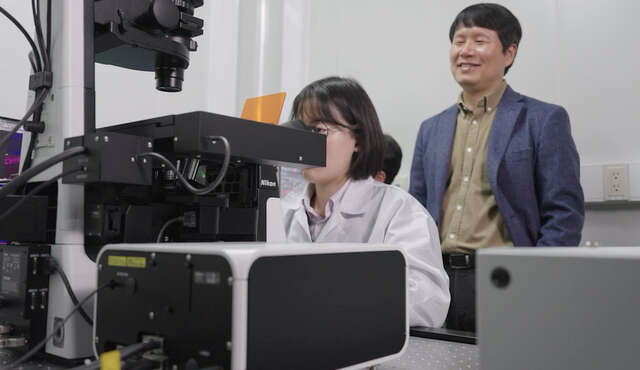
YOUR SWITCH TO THE FUTURE
Korea Advanced Institute of Science and Technology
Professor Won Do Heo, Ph.D.
Department of Biological Sciences
Research Outline: Optogenetic and bio-imaging technologies.
Per saperne di più
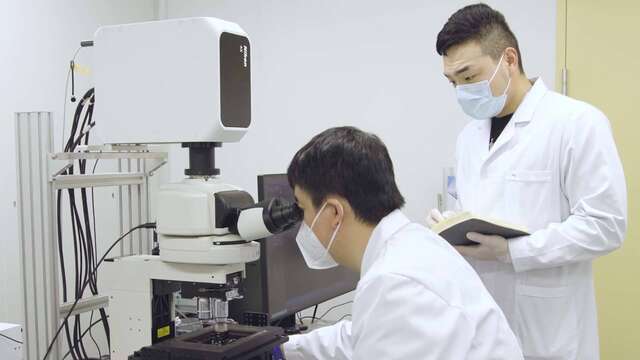
YOUR SWITCH TO THE FUTURE
Chinese Institute for Brain Research, Beijing, China
Dr. Hu Zhao, Principal Investigator
Research Outline: New tissue clearing methods, and building a neural connectome mapping platform based on these methods.
Per saperne di più
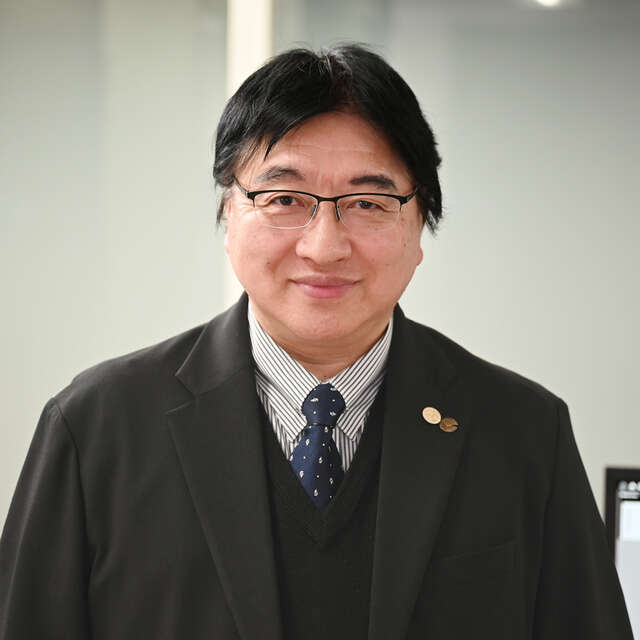
“I believe this can change conventional imaging for pathologists”
Takeshi Sasaki
Professor, Project Leader, M.D. Ph.D
The University of Tokyo Hospital
Dept. of Next-Generation Pathology Information Networking
In medicine, pathologists play an extremely important role in confirming observation. They are often making observations with a microscope for long periods of time and the physical and mental burden of this is heavy. Aiming to reduce such stress issues for pathologists, Nikon has developed a new microscope for pathological examination, the ECLIPSE Ui, which allows pathologists to view high-resolution images of specimens on a monitor, rather than looking through eyepieces. Here, Dr. Takeshi Sasaki of the University of Tokyo Hospital, who has evaluated this microscope, talks about his impressions of it.
*Dr. Sasaki has provided feedback to Nikon on this microscope’s features and clinical usefulness based on his own personal experience.
Per saperne di più
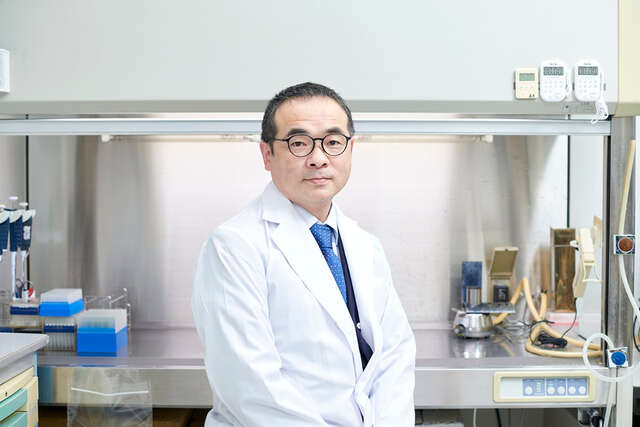
Nikon BioImaging Lab contributes to “mini-gut” research
Dr. Hidenori Akutsu
Director of the Department of Reproductive Medicine, Center for Regenerative Medicine, National Center for Child Health and Development
Per saperne di più
Nikon Equipment and Services
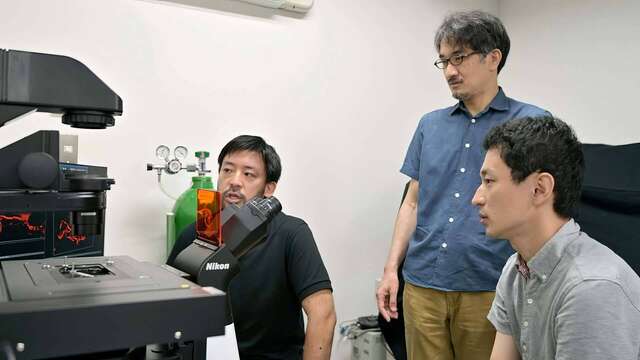
YOUR SWITCH TO THE FUTURE
Research Institute for Microbial Diseases (RIMD) at Osaka University
Hiroaki Miki, Professor
Yosuke Funato, Associate Professor
Osamu Hashizume, Assistant Professor
Division of Cellular and Molecular Biology, Department of Cellular Regulation
Research Outline: Analyzing the function of a membrane protein molecule called Cyclin M, which plays a role in ejecting magnesium ions from cells.
Per saperne di più
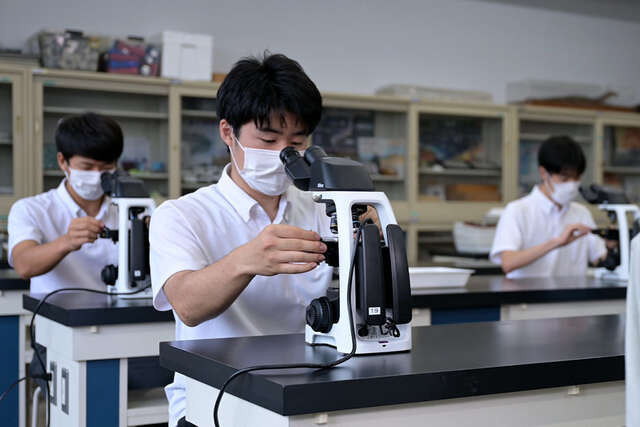
Supporto all’attività didattica con ECLIPSE Ei
“È facile insegnare agli studenti come usarlo e anche loro lo trovano semplice da usare”
L'osservazione mediante microscopi svolge un ruolo estremamente importante nell'apprendimento delle basi della scienza. ECLIPSE Ei di Nikon è stato sviluppato come microscopio per uso didattico ed è infatti un “microscopio facile da usare anche per gli studenti che lo utilizzano per la prima volta”. Abbiamo visitato la professoressa Rika Izumi, docente di scienze presso la Rikkyo Niiza Junior and Senior High School, Saitama (Giappone), dove l'ECLIPSE Ei è disponibile nelle classi, per conoscere il background e le ragioni della scelta di questo microscopio, l'esperienza degli utenti e le reazioni degli studenti.
Per saperne di più
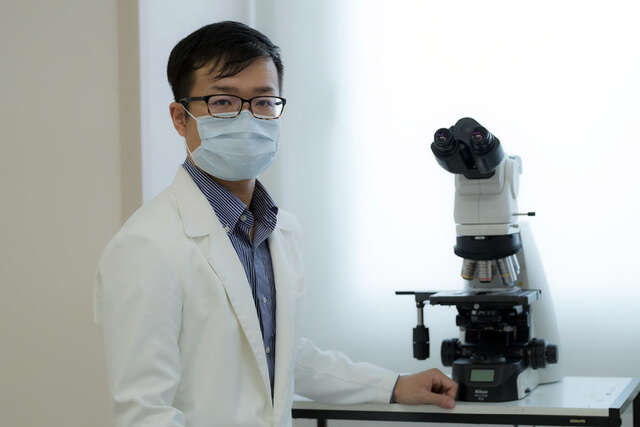
L'ECLIPSE Ci-L plus contribuisce ad eseguire esami clinici con più confort.
“Insieme alle elevate prestazioni ottiche, mi sono reso conto che il suo design accurato aiuta il nostro lavoro giornaliero.”
Gli esami clinici svolgono un ruolo importante nelle cure mediche. Nikon ha sviluppato un nuovo microscopio biologico, l'ECLIPSE Ci-L plus, con il concetto di ridurre lo sforzo fisico e mentale per i medici e i tecnici di laboratorio che utilizzano i microscopi quotidianamente. In questa intervista, abbiamo parlato con il Dr. Akira Yoshikawa del Dipartimento di Patologia Anatomica del Kameda Medical Center - un ospedale di punta nella parte meridionale della prefettura di Chiba, in Giappone - sulle sue considerazionidopo aver utilizzato questo microscopio e l’obiettivo per microscopi di nuova concezione ‘CFI Plan Apochromat Lambda D’ per un pratico uso quotidiano.
Per saperne di più
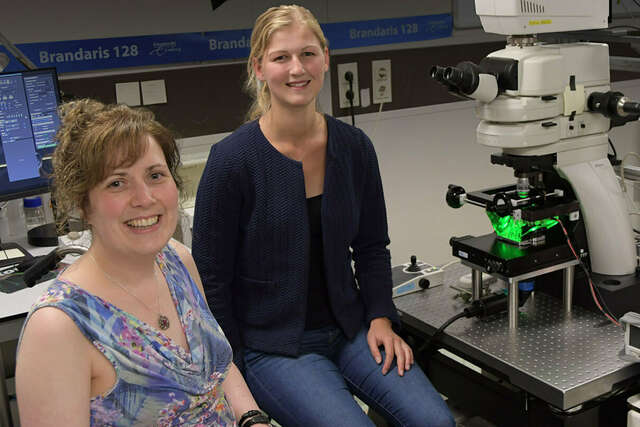
Associate Prof. Dr. Klazina Kooiman and Dr. Ines Beekers
Associate Prof. Dr. Klazina Kooiman, Head of Therapeutic Ultrasound Contrast Agent Group, and Dr. Ines Beekers, Postdoctoral Researcher in the Department of Biomedical Engineering of the Thoraxcenter, Erasmus MC, Rotterdam, the Netherlands
Per saperne di più
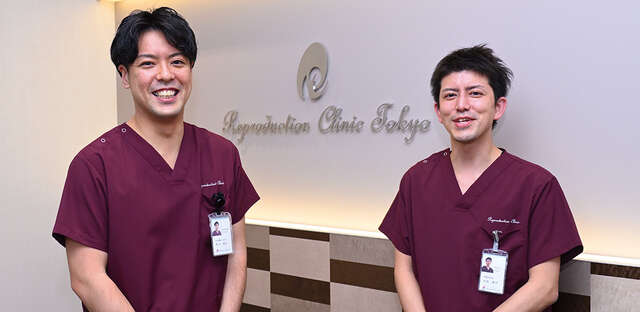
Reproduction Clinic Tokyo
“Trovare lo spermatozoo migliore tra milioni. Per gli embriologi si tratta di un lavoro di selezione esclusivo e sentiamo un forte senso di responsabilità.”
Al Reproduction Clinic Tokyo, una clinica per la fertilità situata al terzo piano del Shiodome City Center, un edificio a uso uffici all'avanguardia nella zona di Shiodome nel centro di Tokyo, si affida un alto numero di pazienti in attesa di cura, nei giorni feriali anche in orario serale. Abbiamo intervistato Shimpei Mizuta e Tomohiro Maekawa, che utilizzano il microscopio invertito Ti2 di Nikon per la selezione degli spermatozoi e l’iniezione intracitoplasmatica di sperma (ICSI), per scoprire il loro lavoro e le loro impressioni sul Ti2.
Per saperne di più
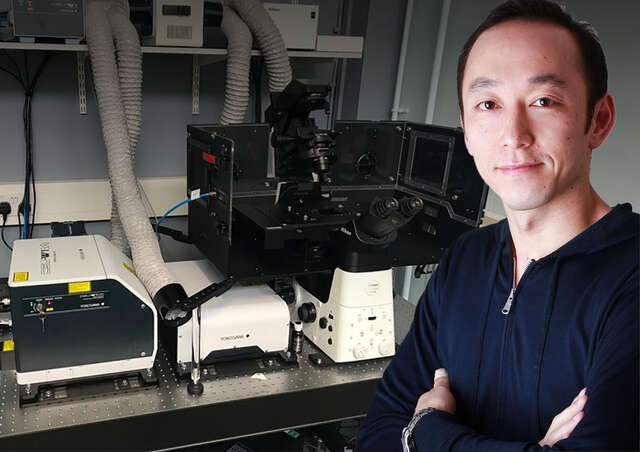
Dr. Yohei Yamauchi
Dr. Yohei Yamauchi, Principal Investigator, Cell biologist of viral infections, School of Cellular and Molecular Medicine, University of Bristol, UK
Per saperne di più
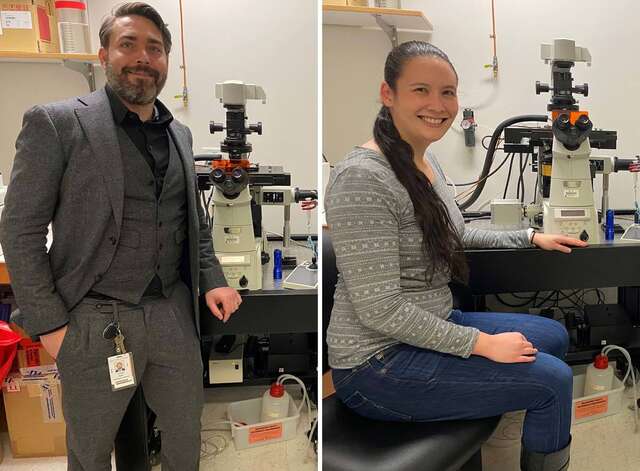
Assistant Prof. Joseph Michael Hyser & Dr. Alexandra Leigh Chang-Graham
Virology and Microbiology
Baylor College of Medicine
Houston, Texas, USA
Per saperne di più
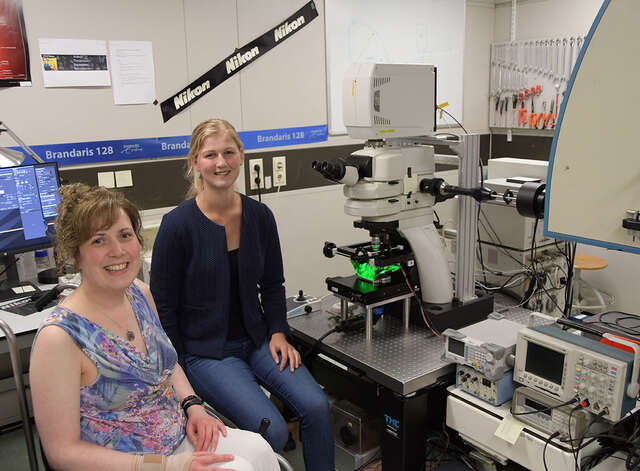
Assistant Prof. Klazina Kooiman & Inés Beekers
Therapeutic Ultrasound Contrast Agent Group, Thoraxcenter, Department of Biomedical Engineering, Erasmus MC, Rotterdam
Per saperne di più
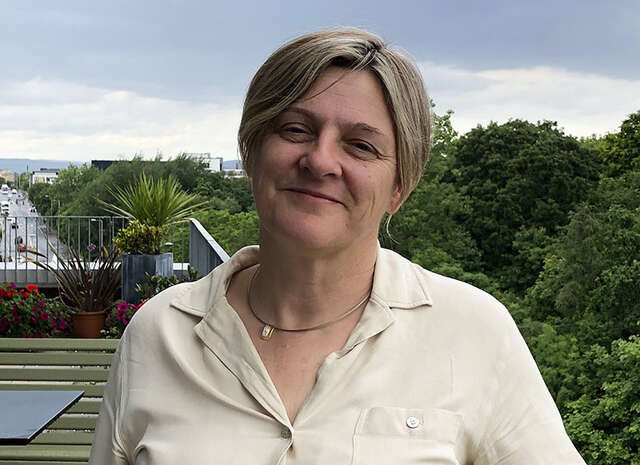
Prof. Wendy Bickmore
Director: MRC Human Genetics Unit, University of Edinburgh
Per saperne di più
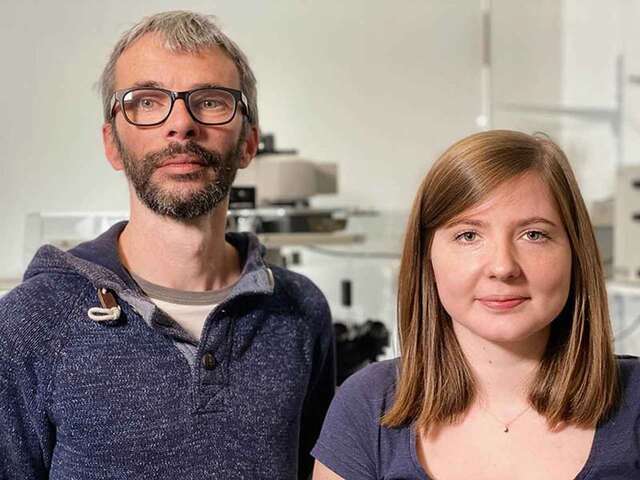
Dr. Steven Nedellec and Dr. Tiphaine Douanne
Dr. Steven Nedellec, Facility Manager of MicroPICell, Université de Nantes, France and Dr. Tiphaine Douanne, Universite de Nantes, Signaling in Oncogenesis, Angiogenesis and Permeability, CRCINA INSERM U1232, France
Per saperne di più
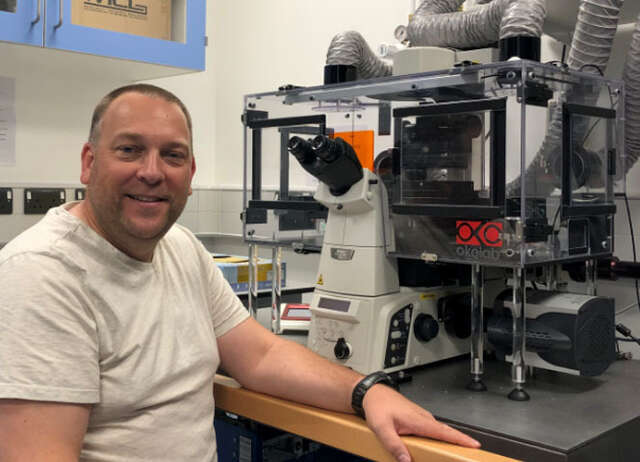
Dr. Steve Thomas
Senior Lecturer in Cardiovascular Science, University of Birmingham
Per saperne di più
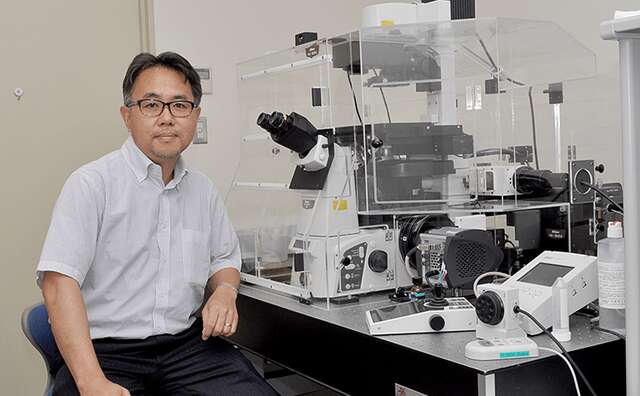
Dr. Tadahiro Iimura
Division of Bio-Imaging, Proteo-Science Center (PROS), Ehime University
Division of Analytical Bio-Medicine, Advanced Research Support Center (ADRES), Ehime University
Graduate School of Medicine, Ehime University
Per saperne di più
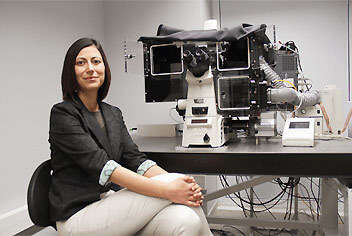
Melike Lakadamyali, Ph.D.
The advanced Fluorescence Imaging and Biophysics Group, ICFO-Institute of Photonic Sciences
Per saperne di più
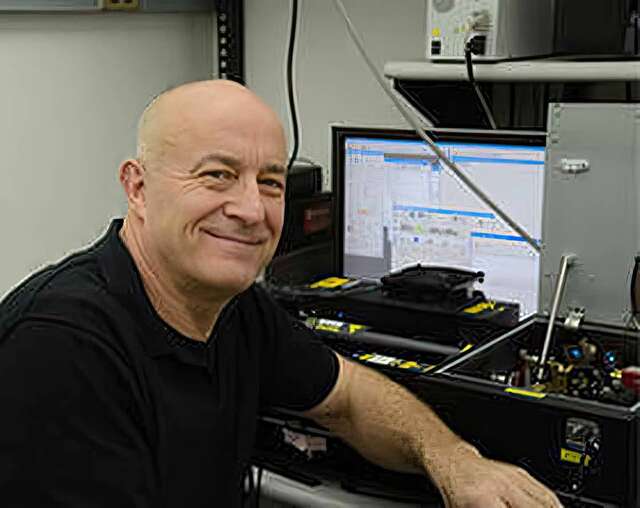
Simon C. Watkins, Ph.D.
Professor and Vice Chairman of the Dept. of Cell Biology
Director and Founder of the Center for Biologic Imaging
University of Pittsburgh
Pittsburgh, Pennsylvania, USA
Per saperne di più
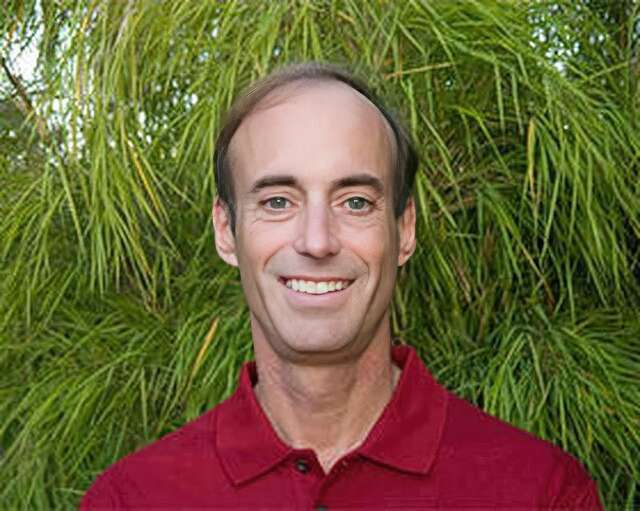
Ronald D. Vale, Ph.D.
Professor and Vice-Chairman of the Department of Cellular and Molecular Pharmacology
Investigator, Howard Hughes Medical Institute (HHMI)
The University of California, San Francisco San Francisco, CA, USA
Per saperne di più
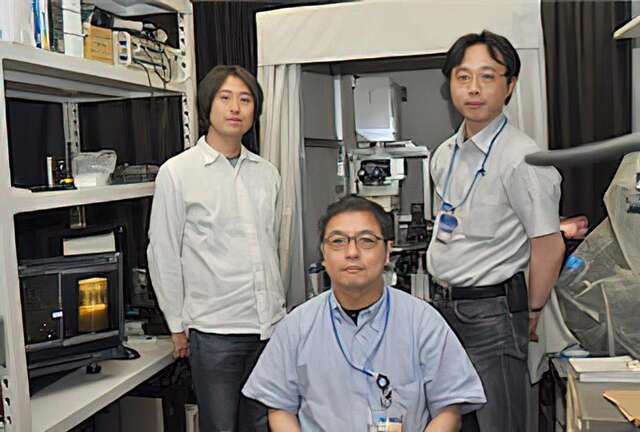
Tomomi Nemoto, Ph.D. and Ryosuke Kawakami, Ph.D.
Research Institute for Electronic Science
Sapporo, Hokkaido, Japan
Per saperne di più
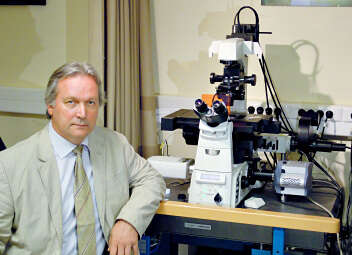
Tamas Freund, Ph.D. and Istvan Katona, Ph.D.
Institute of Experimental Medicine of the Hungarian Academy of Sciences (IEM HAS)
Budapest, Hungary
Per saperne di più
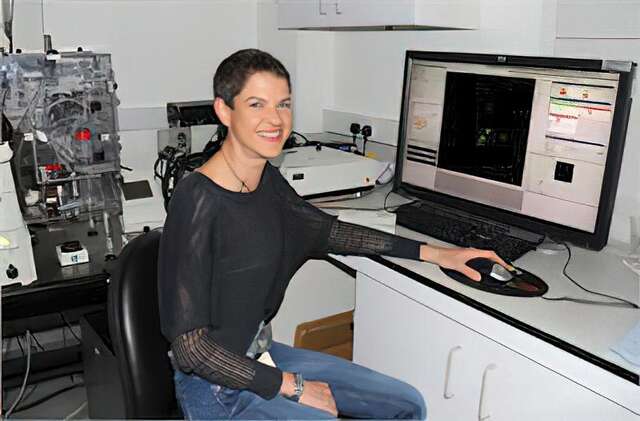
Maddy Parsons, Ph.D.
Group Leader (Royal Society University Research Fellow)
Randall Division of Cell and Molecular Biophysics
King’s College London
London, United Kingdom
Per saperne di più
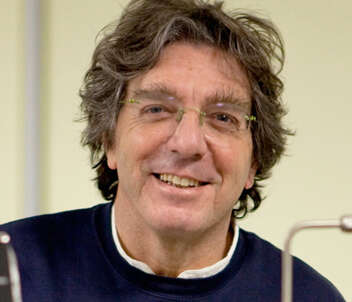
Alberto Diaspro, Ph.D.
Professor of Applied Physics, Department of Physics, University of Genoa
Director of the Department of Nanophysics, Istituto Italiano di Tecnologia
Per saperne di più
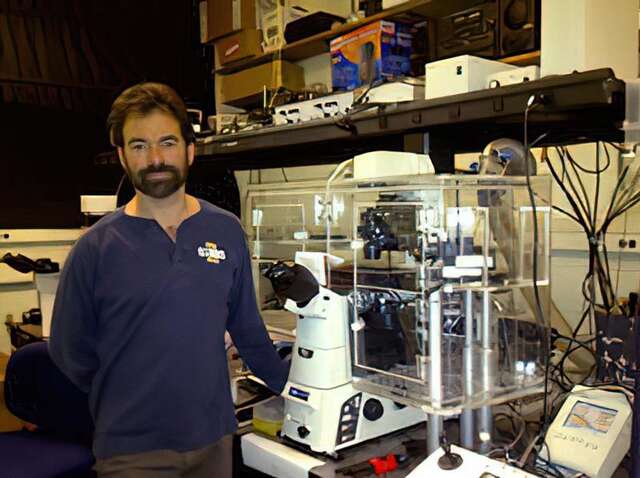
Paul Ronald Selvin, Ph.D.
Professor, Department of Physics, University of Illinois at Urbana-Champaign
Per saperne di più
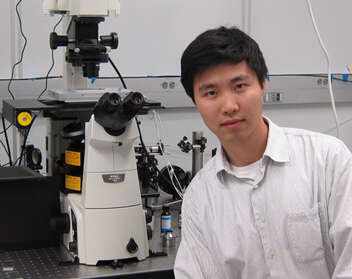
Bo Huang, Ph.D.
Assistant Professor, Department of Pharmaceutical Chemistry, Department of Biochemistry and Biophysics, University of California, San Francisco
Per saperne di più
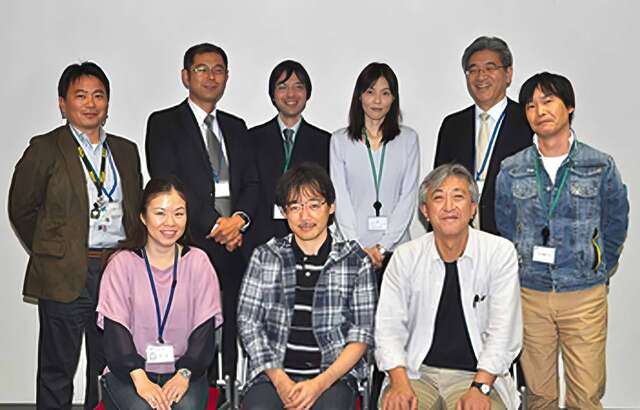
Atsushi Miyawaki, M.D., Ph.D.
Senior Team Leader, Laboratory for Cell Function Dynamics, RIKEN Brain Science Institute
Per saperne di più
Attrezzatura Nikon
- AZ-C1 macro confocal microscope system
- 1x objective lens (AZ-Plan Apo, NA 0.1, W.D. 35 mm)
- 2x objective lens (AZ-Plan Fluor, NA 0.2, W.D. 45 mm)
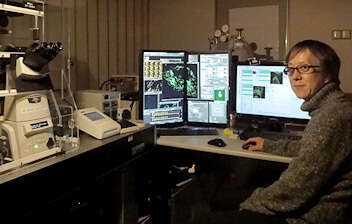
Ikuo Wada, Ph.D.
Department of Cell Science, Institute of Biomedical Science, Fukushima Medical University
Per saperne di più
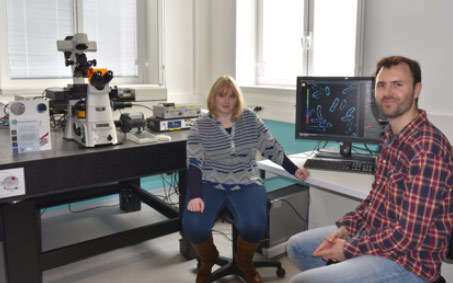
Romain Le Bars, Ph.D.
The Imagerie-Gif light microscopy core facility is a member of the France Bioimaging Infrastructure. The facility is hosted by the Institute for Integrative Biology of the Cell (I2BC) at Gif sur Yvette, France.
Per saperne di più
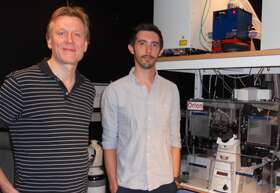
Prof. Staffan Strömblad, Ph.D.
Staffan Strömblad Ph.D. is group leader at the prestigious Karolinska Institutet, Stockholm, Sweden, an institution that awards the Physiology Nobel Prize yearly. He is also the head of the Live Cell Imaging Facility (LCI), in which the Nikon Center of Excellence for live cell imaging is integrate.
Per saperne di più
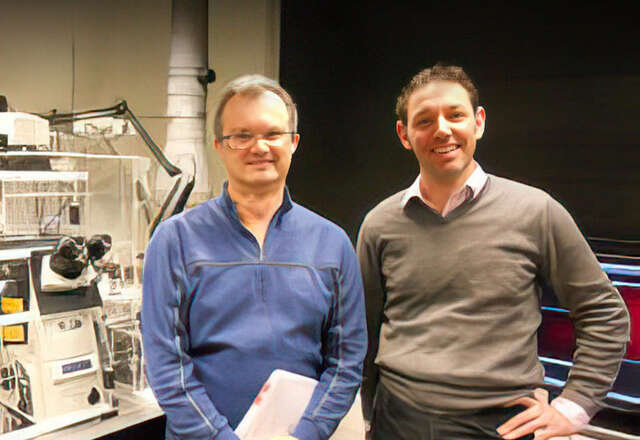
Dr. Arne Seitz, Dr. Romain Guiet and Thierry Laroche
The Faculty of Life Science (SV) at the École Polytechnique Fédéral de Laussane (EPFL), Switzerland, has a long record of excellence in research applied to life sciences
Per saperne di più
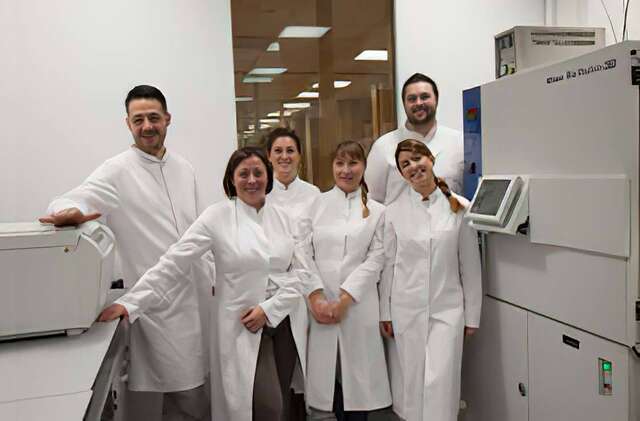
Dr. Jacopo Lucci
Chief Scientific Officer at Natural Bio-Medicine SpA,
Aboca Group
Per saperne di più
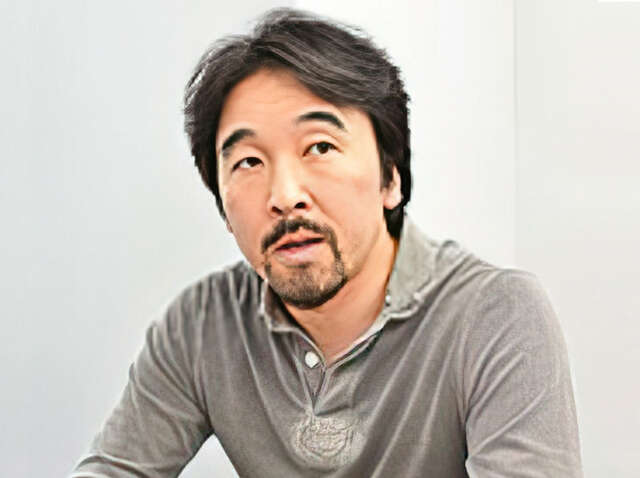
Masato Nakagawa
So-called iPS cells are attracting considerable interest as pluripotent stem cells that may open up a whole new world of medicine. The Center for iPS Cell Research and Application (CiRA) at Kyoto University is pursuing a wide range of research activities that aim to realize regenerative medicine utilizing iPS cells. The Nikon BioStation CT cell culture observation system is being used in this iPS cell research and is contributing to its efficiency.
We were pleased to have had an opportunity to speak with Masato Nakagawa, who is engaged in iPS cell research at CiRA.
Per saperne di più
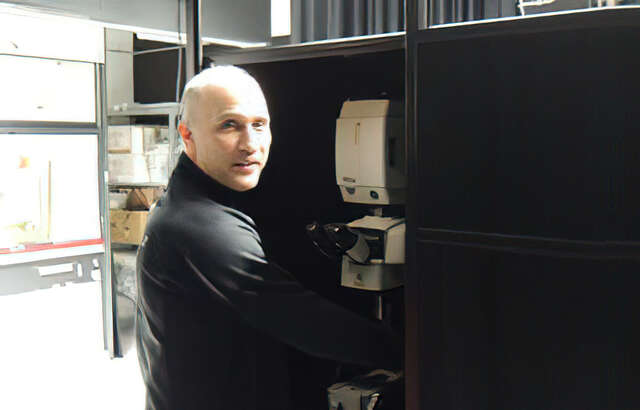
Prof. Heinz Beck, Ph.D.
Full time professor at the Laboratory of Experimental Epileptology and Cognition Research hosted in the Life & Brain Center, Part of the University of Bonn.
Per saperne di più








































